Kate Garraway: The families struggling to pay for care
- Published
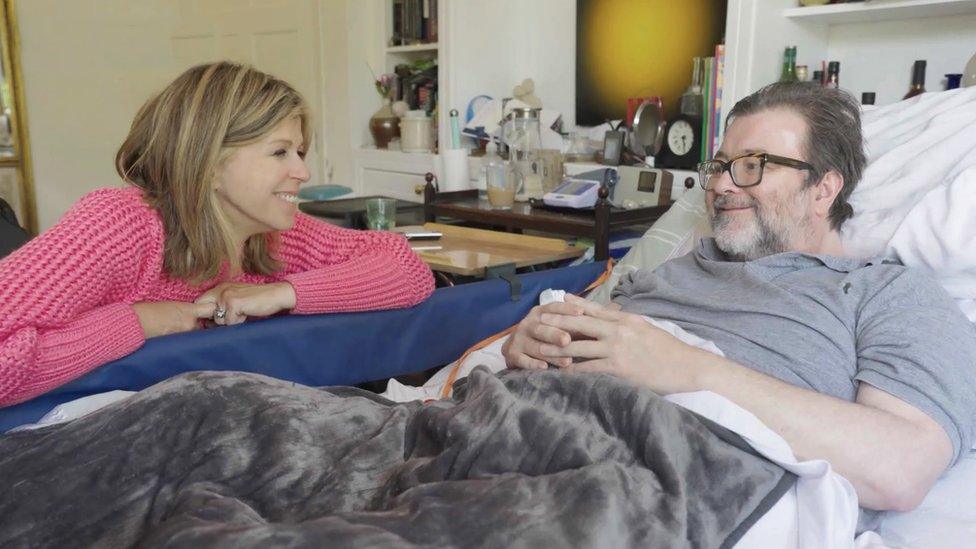
Television presenter Kate Garraway has spoken of her huge debts from her husband Derek Draper's care bills.
He died from the long-term effects of Covid, in January, but she has now told an ITV documentary she had been told he "wasn't sick enough" for funded care.
Other families have told BBC News how they too struggle to pay the bills after failing to meet the criteria for comprehensive support.
The government says more people can now receive continuing healthcare funding.
'I hate having to beg people for things'
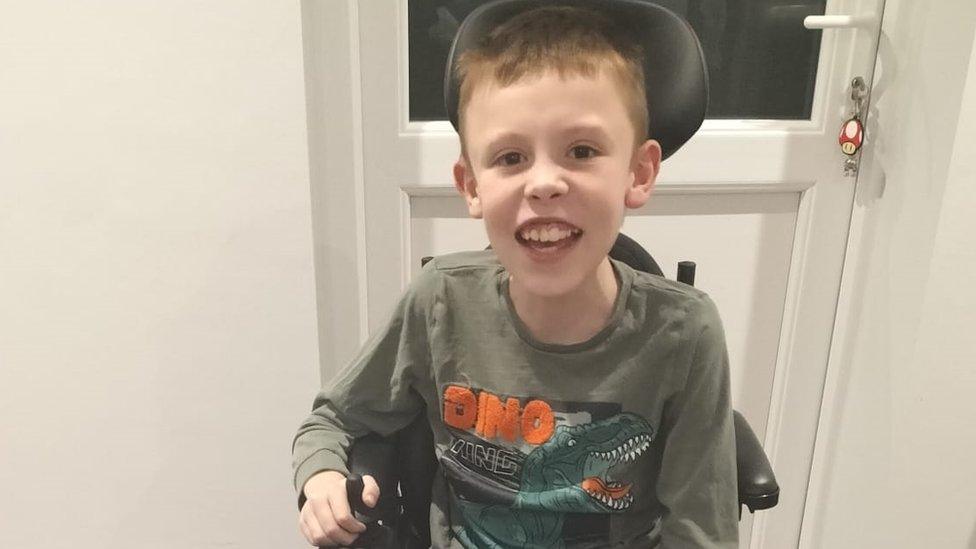
William needs adaptations to make his home accessible
Sam Bell's son William, 10, has a severe and life-limiting form of muscular dystrophy, which causes respiratory problems and is taking away his ability to walk.
He now uses an electric wheelchair.
The family received the maximum £30,000 disabled facilities grant, to make their home accessible to him, but say total costs have spiralled to £86,000.
To help meet the shortfall, they raised nearly £20,000 through online fundraising, charity donations and help from relatives.
"I hate having to beg people for the things that my son should have," Sam says. "It's awful."
"We've had to put up with a lot and then having to ask people for money when we're both working, I feel ashamed."
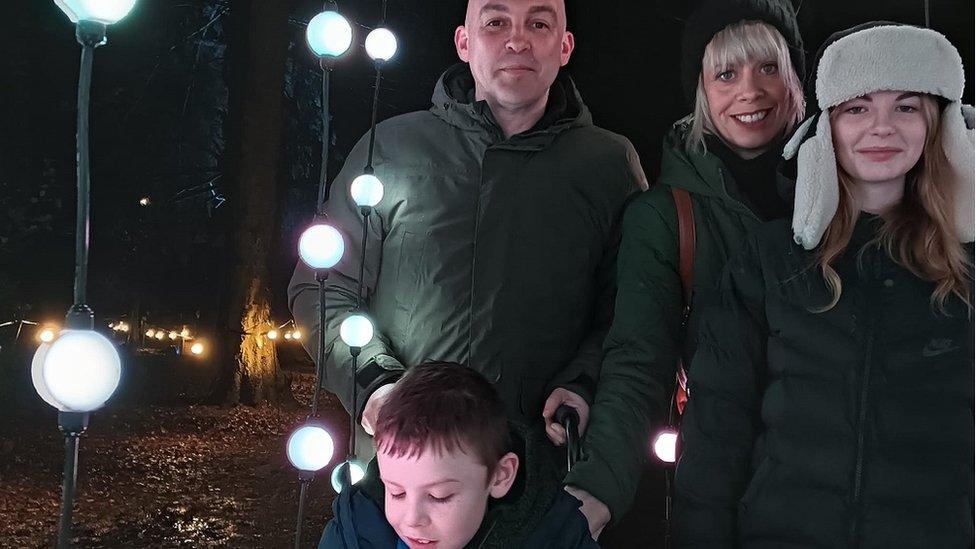
The Bell family asked if they could reduce loan repayments when energy bills rose
The Lincolnshire family have also taken a £20,000 loan from the council, paying back £150 a month.
And when her energy bills tripled, Sam asked for the monthly repayments to be temporarily reduced by £50 but says this was refused.
"My husband desperately needs a new car for work but we can't afford that because we are paying the council back," she says.
"There's no money left for anything."
The £30,000 maximum disabled facilities grant - for disabled people in England to adapt their homes - has not increased since 2008, meaning in real terms it is now worth about a third less than when introduced.
And the government has now dropped a commitment to increase it.
'Not having the money is very stressful'
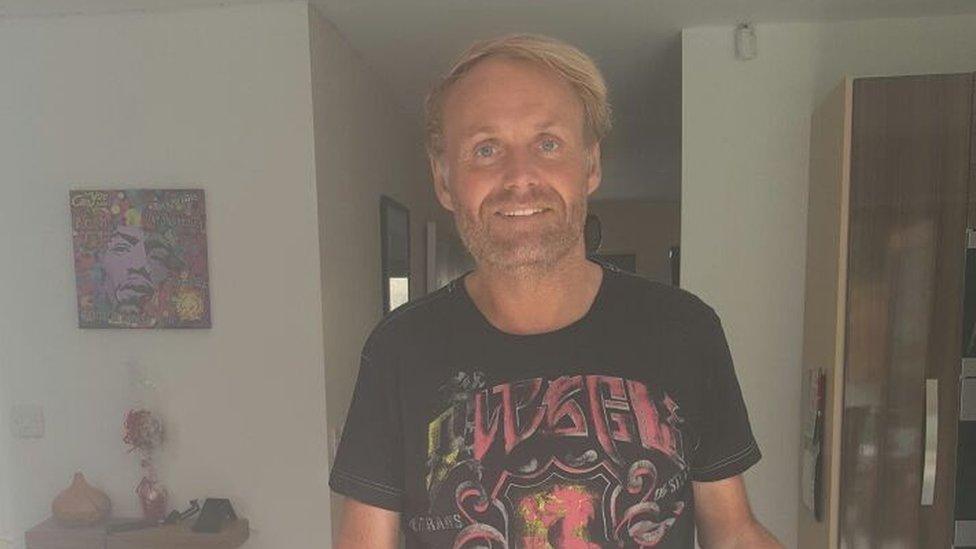
Jason was paralysed from the neck down in an accident in 1999
Jason Mitchell, paralysed from the neck down by a holiday swimming pool accident in 1999, has borrowed hundreds of pounds from his mother, to pay for carers.
For more than 20 years, the NHS funded the 24-hour care he says he needs
But three years ago, a continuing-healthcare assessment stopped this - a decision Jason has been trying to appeal against ever since.
Now, the council gives him £4,700 every four weeks, on the understanding this will pay for carers costing £175 a day.
But Jason also has to cover their travel, with some coming up from London to his West Midlands home, while emergency back-up carers cost him £250 a day.
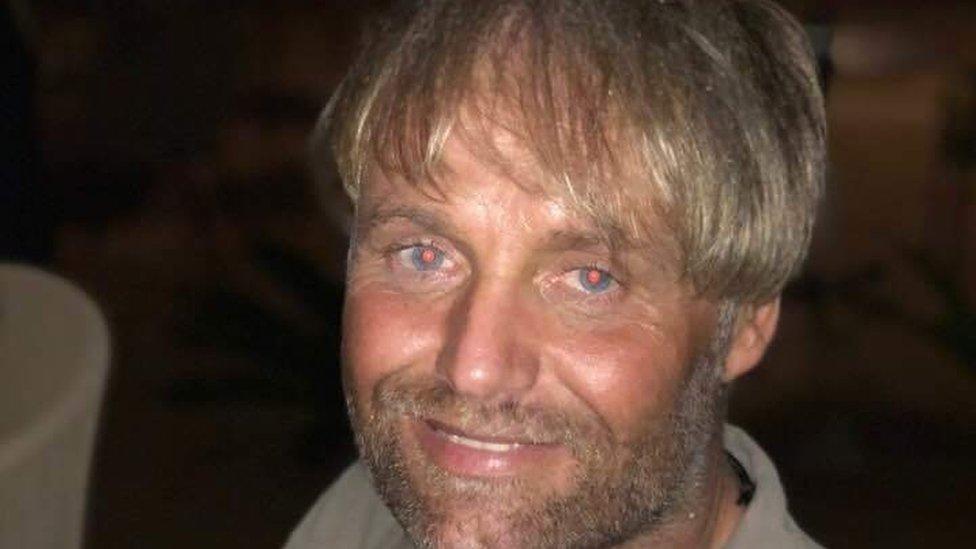
Jason has been borrowing money from his mother to cover the cost of care
Last month, Jason's mother lent him £670 to meet the shortfall.
And this month, she has agreed to look after him herself for four days, to help save on costs.
"It's not a situation that should have to happen really," Jason says.
"Due to my spinal cord injury, I need that care.
"It's not a choice for me.
"To live independently, that is the only way my life can function
One social worker suggested he should consider moving into a residential care home, now his care has become more expensive.
"I was furious," he says.
"Everybody has a right to live their life and shouldn't be pushed into something like that."
Jason used to be a keen Birmingham City Football Club season-ticket holder - but poor health and anxiety over the situation have taken their toll.
"Money is relatively tight to be honest," he says.
"I have to be careful what I do with it.
"It's just constantly on your mind and there's no way of alleviating that
"It's just constantly a worry."
Jason's mother, Ann Walton, says if the situation continues, it will bankrupt her.
"We're devastated," she says.
"Whatever savings I've got, that's where it comes from.
"My money doesn't get replaced as I'm not working.
"I've just got my pensions.
"Jason not having the money, it's very, very stressful.
"Ever since he had his accident, your life changes anyway because you've always got to be there for them."
Garraway told the documentary, which is available on ITVX, that she was "well paid" as a presenter but her salary had failed to cover the £4,000 a week needed to fund her husband's treatment.
"Time and time again the system tell us that Derek isn't sick enough, doesn't have enough of a health need to qualify for funded care," she said.
"I've appealed but that still hasn't been processed two-and-a-half, three years later.
"If this is what it's like for me, what on Earth is it like for everybody else?"

Garraway says she was told her husband 'wasn't sick enough' for funding
Continuing healthcare is free NHS social healthcare given to adults in England and Wales who live outside of a hospital setting, with long-term complex health needs.
But of the 38,726 people in England assessed in October-December 2023, just over one in four were found to be ineligible.
And in the same timeframe, just over 29,000 people were defined as no longer eligible - for example, because they did not meet the criteria or had died.
A Department of Health and Social Care official said the number of people eligible for continuing healthcare in England had increased since 2017-18 and £600m was awarded annually through the disabled facilities grant.
"These packages of care provide vital support to individuals and their families and there is clear guidance to determine who is eligible to receive them, regardless of their age, condition or financial means," the spokesperson added.